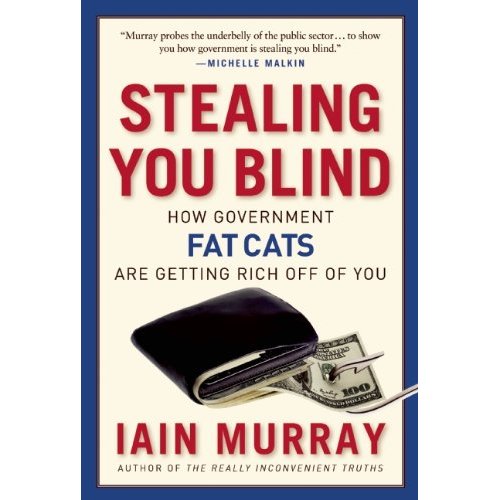Iain Murray, in his excellent new book , takes the reader on a tour through the sprawling, wasteful, oppressive and destructive mess that we are all paying for upon pain of imprisonment.
, takes the reader on a tour through the sprawling, wasteful, oppressive and destructive mess that we are all paying for upon pain of imprisonment.
Most readers of this blog are of a conservative or libertarian disposition already. Our inclination is to see the government, as presently constituted, as a ruinous burden on the economy, and a noxious growth choking out our freedom and our future prospects. Iain Murray’s book provides facts and evidence, and many anecdotes, demonstrating the accuracy of this view. If anything, by the detail and specificity of his depiction, he shows that things are worse than I thought, which is an achievement.

Read more
